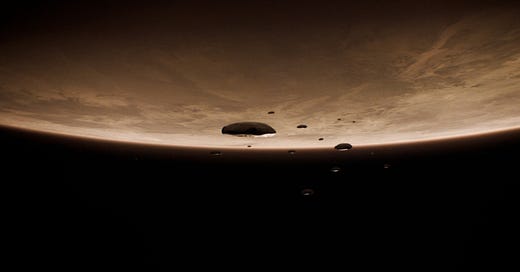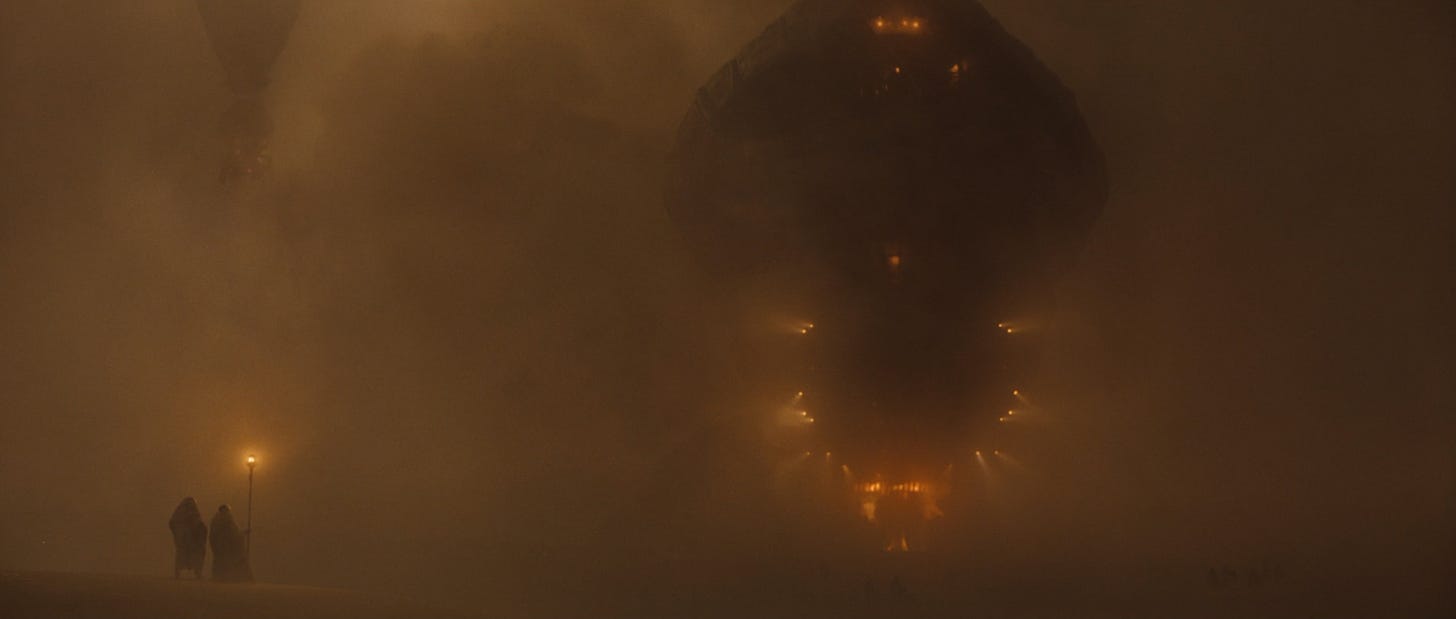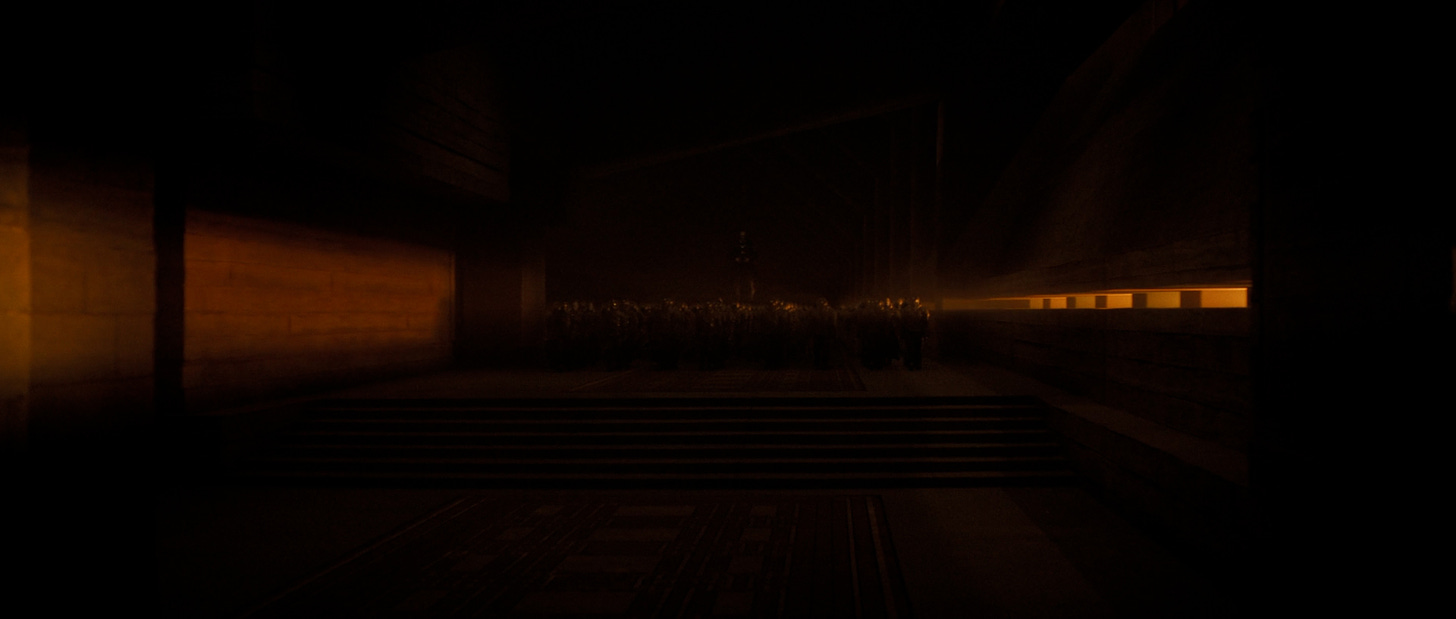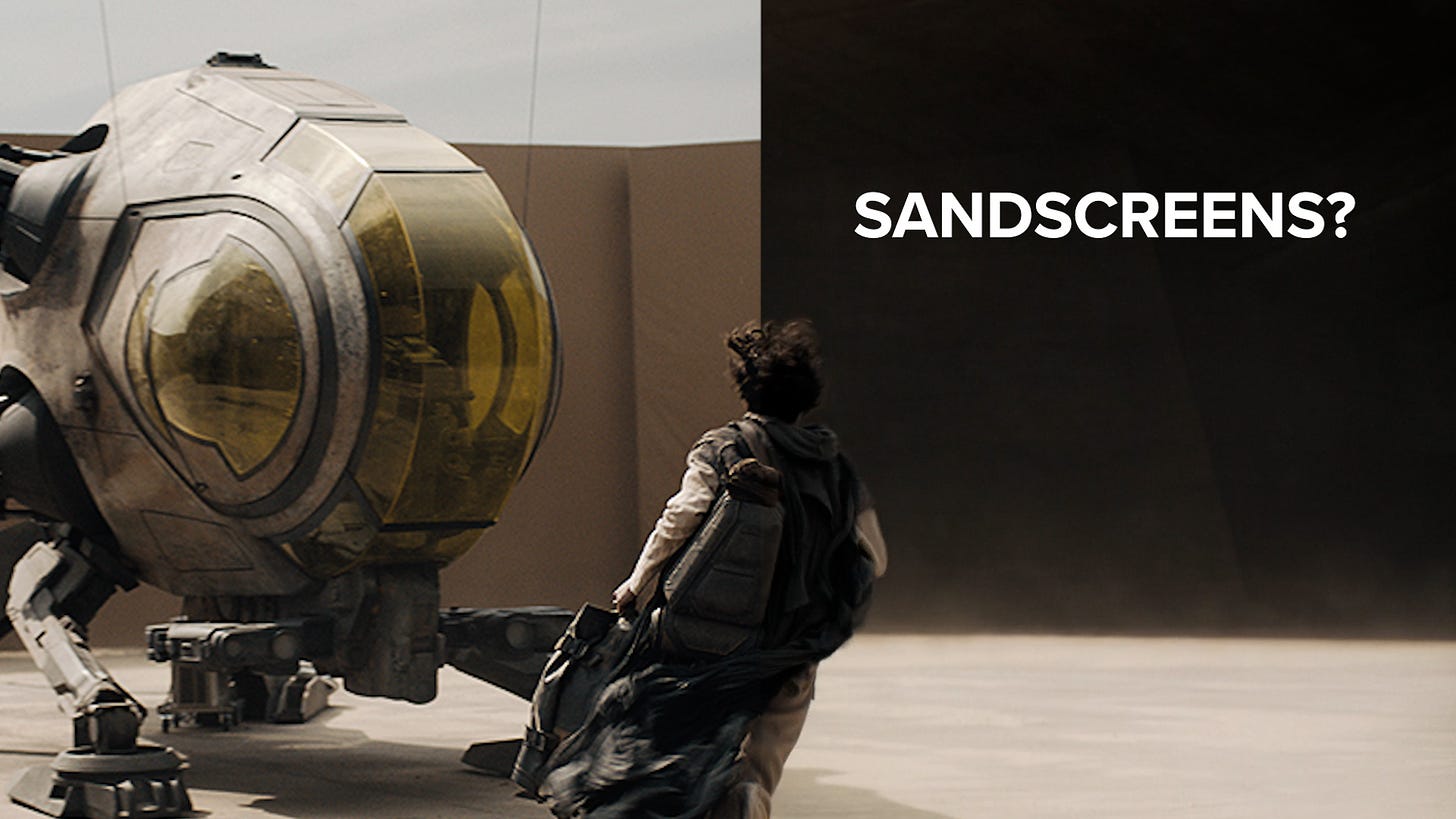In my last two videos, I covered the elements of Dune that I loved the most, the score and sound design, and the amazing visual effects and cinematography. And while I enjoyed the movie overall, and am very excited for the second part, I didn’t think it was a perfect film. In this issue of the newsletter, I want to examine what I think Dune (Part 1) is missing.
Dune adaptations have a troubled past. David Lynch has famously disavowed his adaptation, which was a box office failure. Alejandro Jodorowsky’s crumbled under the weight of its ambition before it even got off the ground.
And while each of these failures had their circumstances that led to their less-than-optimal results— I think a big part of why an adaptation was never successful has to do with the complexity and structure of the material itself.
When you’re talking about adapting Dune. You’re talking about adapting one of the most beloved and influential Science Fiction novels of all time. And not just influential in sci-fi literature. The ripple effect of Dune’s massive influence on George Lucas and Star Wars, and then Star Wars’ influence on Sci-Fi Film, means that much of Science fiction Film has been touched by Dune in some way.
It’s also not a book that is easy to simplify or reduce to only its most critical parts, as is necessary for the screen adaptation of almost any book. There are so many different fictional ideas, themes, cultures, and technologies throughout the book. Each with its unique challenges when it comes to visualizing them on screen.
So here comes Denis Villeneuve, one of the most capable contemporary science fiction directors. The guy who somehow didn’t botch a Blade Runner sequel but actually elevated the material. Someone who himself has been a fan of Dune, and dreamed of making a film adaptation since he was 14, even making storyboards at that age for the film he hoped to one day direct.1 It seems like, if we are ever going to get a good screen adaptation of Dune, this was the ideal scenario. Did he pull it off?
In a certain way, I thought Dune was an incredible experience. The film shows us a complex, fascinating world in stunning detail. This film has a particular combination of score, world-building, and set design on display at certain moments that for me, by itself, is worth the price of admission.
There's this shot from the opening montage establishing Arrakis that's a perfect example of this. It's so evocative, beautiful, and lends such depth to the world so quickly that I'm hooked, I'm there, I want more. I want to spend 2 hours just looking at that environment. There’s a texture and thoughtfulness to how Denis constructs the shots of his settings, that makes them not just beautiful, but interesting and meaningful. Often sci-fi films or shows, hoping to portray huge scale, simply show, wide shots of CG cities with so much complexity that you can’t really absorb them, but Villeneuve generally does a great job of placing us in the environment and using a few elements within the frame to suggest a much larger world beyond it.
These moments are sprinkled throughout the film: the Bene Gesserit ship landing, and leaving after testing Paul, the Sardukar marching through the brutalist architecture of the Arrakeen palace illuminated by only the glow of the burning city, Paul watching the carry-all detach from the ground. Villeneuve uses character perspective and interesting lighting to give the world some weight and tangibility.
And then there’s the details and technology of these worlds. The way the sound design and editing that work together to portray the use of the voice so that it feels like it's actually resonating throughout the entire room and coming from some deep and ancient place. Some of the film’s most expressive use of editing and camerawork are in these moments, where we enter into the subjectivity of the person being affected by the voice. It’s a very simple, effective way of conveying the idea without the use of visual effects.
The way the worms or the sand compactors move the sand is beautifully done, or the intuitive way the shields are visualized, or the levitation element of the Baron’s costume. These are all ideas that could easily look silly or campy, but they don’t here, they look like part of a functional world in the distant future.
Villeneuve has developed a unique brand of Sci-Fi Realism, and his adaptation of Dune is the most beautiful sci-fi world I've ever seen in a film in this style. And to top it off that world is filled with an amazing Hans Zimmer score and an incredible cast.
But. (Spoilers incoming).
My feelings on this film are conflicted. Something feels like it’s missing. And it’s not just that this is an incomplete, first half of a story.
Dune is good, I had a blast watching it, and it will almost certainly be one of my favorite films of the year, but it feels like it could have had the potential to be one of my favorite films of all time. So what is holding it back?
The complicated story of Dune, its potential greatness, and its pitfalls, I think lies largely in its source material. Dune the book and this film version of Dune, are incredibly dense and if you’re measuring the quality of an adaptation by how little it deviates from its source material: this is a really great adaptation.
There's a lot about this story and the way that it's structured in the book that I think would just be really difficult to make work really well in a film without expanding or altering it in significant ways. Villeneuve stays very true to the major beats and structure of the book, which is great for the fans of the book who just want to put images to a story they know, but it also cripples the film.
The structure essentially requires you to introduce the viewer to a world and a set of characters, and then burn it down and kill most of them off, and then introduce us to another set of characters right as the film is ending. That works as the front half of a 900-page book, but even splitting the film into two parts and taking as much time as Villeneuve does, does not give us enough time to fully develop any of the characters in the first half.
The volume of work that has to be done here just to set the groundwork for the story is kind of insane. You have to establish the basic political landscape of the Imperium, but also the specific political landscape of Arrakis. You have to establish the technological elements, the use and necessity of spice, navigating the desert, the significance of the Bene Gesserit and their mythos, etc.
In the midst of all that you also have to establish the character of Paul, The Duke, Jessica, Duncan Idaho, Yueh, Hawat, Halleck, and Kynes. That's just the first round, and the characters central to the story surrounding Paul and the betrayal of Atreides. There's just not enough time. Yueh's betrayal barely feels like a betrayal because by the time he does we've just seen him on screen a couple of times doing vaguely doctor-y stuff.
We get basically one scene of emotional connection between The Duke and Paul, and The Duke and Jessica before he dies, so his death doesn't end up carrying much emotional weight.
Duncan Idaho feels like the most lived-in, and his sacrifice feels somewhat significant. But Kynes and Halleck just go by the wayside. Not all of these need to feel like significant emotional moments, but almost none of them do in this film. And it's not the fault of how those moments are played or constructed, we just haven't had the time to spend with those characters that we need to really care about them by the time they're dispatched.
So you get through the majority of the film and most of those characters are gone, and now we're on to developing a new set of characters in the Fremen, and their socio-cultural dynamic. So we’re starting again with world-building, exposition, and establishing characters.
MEANWHILE, you're also trying to give Paul an emotional and dramatic arc, and show him grappling with his possible position as a messiah figure and his newfound ability to kind of see the future. Also, btw Lady Jessica is Pregnant.
There's just not enough time for all of this.
That's not even to mention the many thematic facets of the book that have interesting potential; the ecological elements, the psychedelic and philosophical content, the political allegory. These things might be more fully fleshed out as the story continues in part two, but in this part, each is only touched on momentarily at best.
Throughout the first film, no scene is extraneous, almost every moment is introducing us to some character, idea, or plot point. This might seem fine. But movies are more than ideas and plot, you also need room for two elements that bring this kind of film to life, emotional connection between characters, internal character conflict, and suspense.
I think this first part will probably look better in hindsight, and I have high hopes for the second part. And like I said, there is still lots to love about this film, my feelings were majority positive. But it showcases just how complicated adaptation can be. And if Villeneuve had made the changes necessary to reshape the story’s structure for the screen, he’d be facing criticism from fans of the book who were upset by the changes.
If you want a more in-depth breakdown. I highly recommend The Closer Look’s video on Dune’s Structure and why faithful adaptations aren’t always the best.
And if you haven’t seen them, here are my two videos on the elements of Dune I loved:
Denis mention’s this in his interview with Chris Nolan for the DGA podcast.







